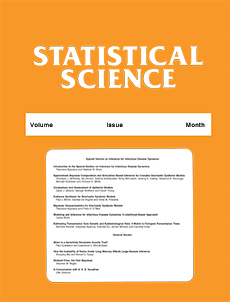Abstract
What role should assumptions play in inference? We present a small theoretical case study of a simple, clean case, namely the nonparametric comparison of two continuous distributions using (essentially) information about quartiles, that is, the central information displayed in a pair of boxplots. In particular, we contrast a suggestion of John Tukey—that the validity of inferences should not depend on assumptions, but assumptions have a role in efficiency—with a competing suggestion that is an aspect of Hansen’s generalized method of moments—that methods should achieve maximum asymptotic efficiency with fewer assumptions. In our case study, the practical performance of these two suggestions is strikingly different. An aspect of this comparison concerns the unification or separation of the tasks of estimation assuming a model and testing the fit of that model. We also look at a method (MERT) that aims not at best performance, but rather at achieving reasonable performance across a set of plausible models.
Citation
Dylan S. Small. Joseph L. Gastwirth. Abba M. Krieger. Paul R. Rosenbaum. "R-Estimates vs. GMM: A Theoretical Case Study of Validity and Efficiency." Statist. Sci. 21 (3) 363 - 375, August 2006. https://doi.org/10.1214/088342305000000278
Information





